Thanks to our friends from Wizards of the Coast for this great preview card! Note how the targeting works so that you actually have to give the Treasure to the other player in order to draw the card.
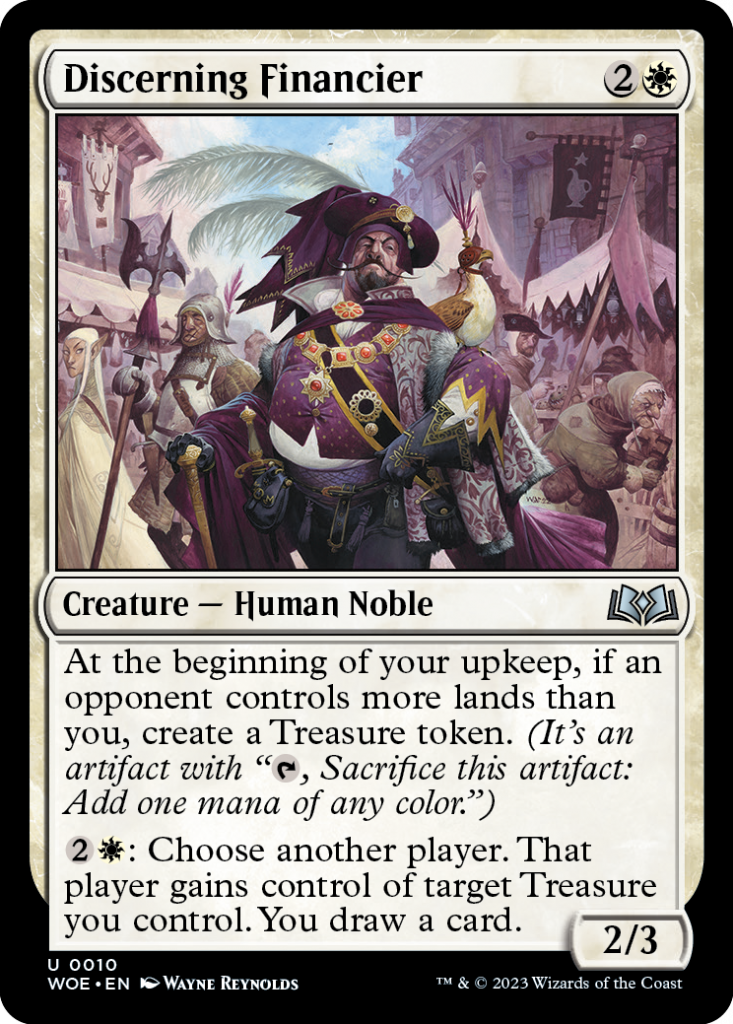
Thanks to our friends from Wizards of the Coast for this great preview card! Note how the targeting works so that you actually have to give the Treasure to the other player in order to draw the card.

Our preview card is one that’s super sweet and has been wanting a reprint for a long time now. Here he is in all his glory:
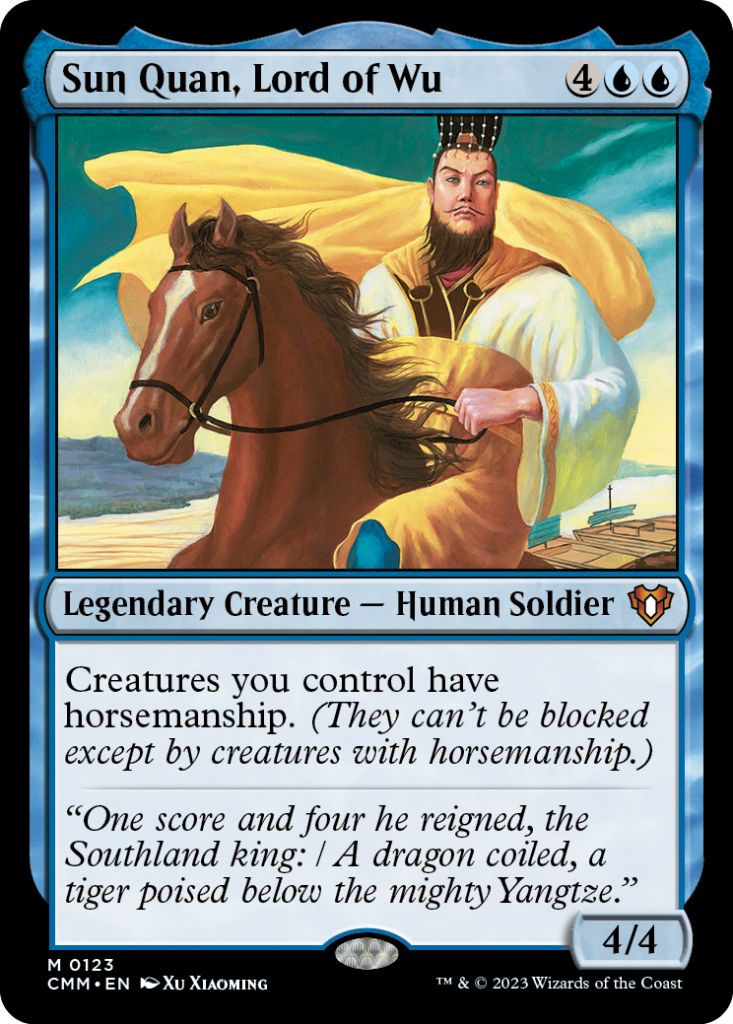
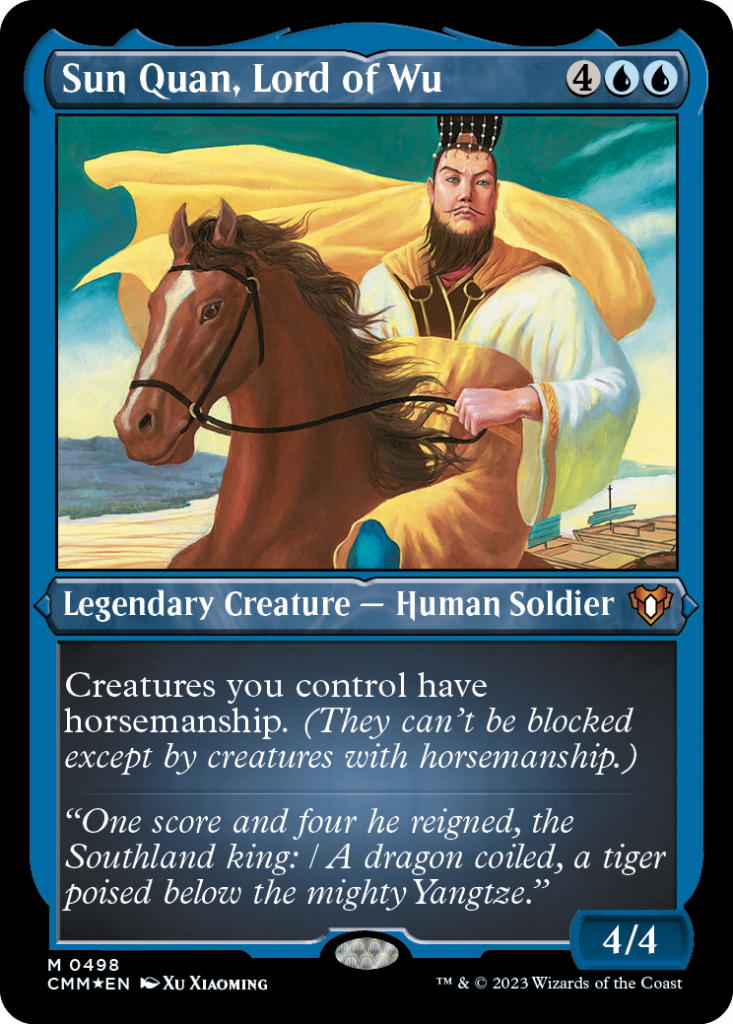
As always, we’d love to have you join us on the RC Discord Server to chat about this and all the other great #MTGCMM cards. Thanks to our friends at Wizards of the Coast for this most excellent free preview.
Hey everyone. You might normally be expecting a quarterly update today (the Monday before the pre-release), but given the proximity of Phyrexia: All Will Be One and the upcoming Aftermath, we figured we’d cool jets until 8 May, the Monday before the release. We’ll have a full quarterly update then. Enjoy yourselves at the Pre-Release. These cards are going to be wild! May all your battles be glorious (and battered down).
Like other DFCs, the color identity of a Battle considers both sides of the card. For example, the CI of Invasion of Theros is white/blue. Also, please remember that for a DFC to qualify as a commander, its front face must be a legendary creature (or have text on its front face otherwise identifying it as a legal commander). There are currently no plans to change this rule. Enjoy the remainder of the #MTGMOM preview season. If you’d like to chat about all the saucy new cards, pop on over to the RC Discord server and join a bunch of friends already doing so!
Thanks to our friends at Wizards of the Coast for this free preview, we’re delighted to show you Kethek, Crucible Goliath:
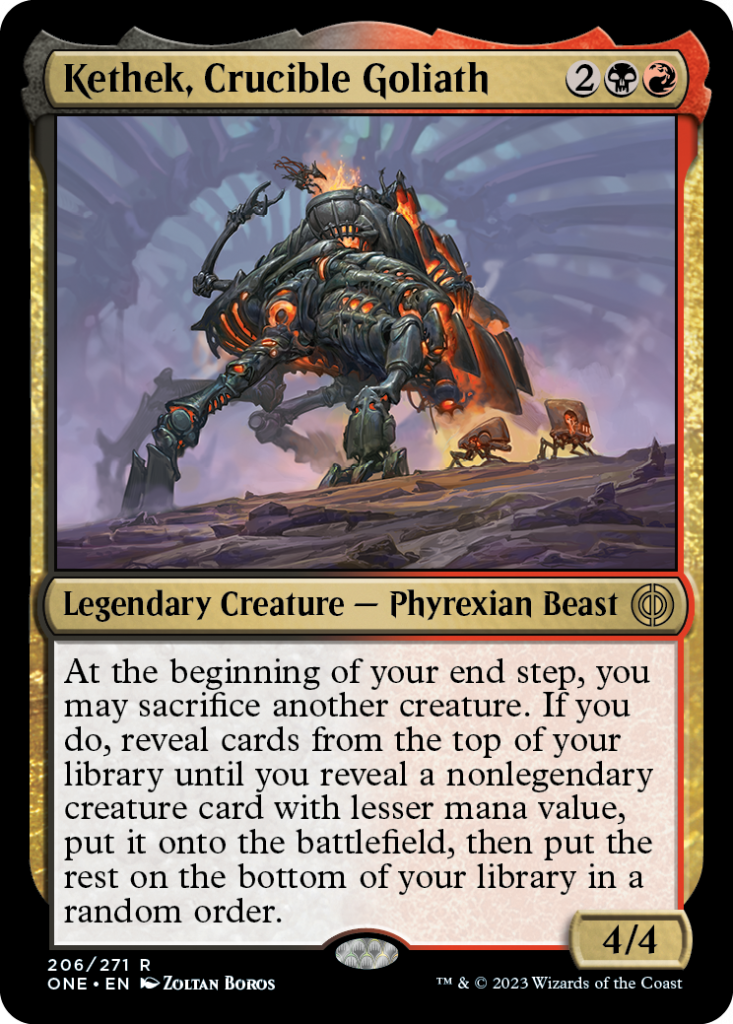
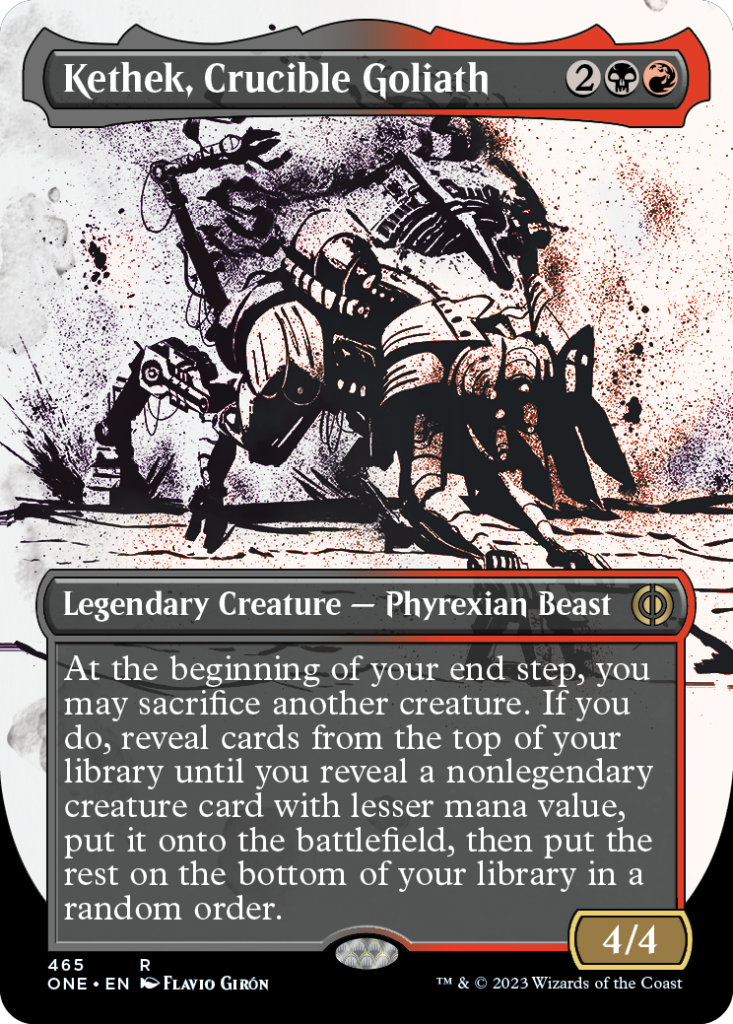
We understand that the new toxic ability from Phyrexia: All Will Be One has folks asking about raising the number of poison counters in Commander. We’ll keep an eye on how it goes, but don’t see a need to take action before we’ve experienced the cards out in the wild. Back when he was a member of the Commander Advisory Group, Jim did a great video on the topic, which pretty much still encapsulates how we feel.
As always, if you’d like to discuss this (or any other topic), head over to the RC Discord, where there are specific channels to do just that.
No Changes
No Changes
No changes*
The asterisk on Administrative Changes is a reminder that we added two folks, Olivia Gobert-Hicks and Jim Lapage, to the Rules Committee. Then all six of us descended on Magic 30 in Las Vegas. We embraced the opportunity to get out into the crowd and not just play, but talk Commander with a fairly large number of people.
The overwhelming sentiment that we found at M30 is that Commander is in a pretty healthy space. There are still a few anxieties, like how to make the best of playing in games with strangers. We continue to work internally on brainstorming just how we might help relieve those fears. We also continue to encourage you to have good pregame conversations with folks who you have just met. The best games are the ones in which everyone is on the same page.
As far as cards are concerned, nothing has crossed the line into being dangerous enough across the broad spectrum of the format to warrant a ban. We’ll continue to keep our eye on hot-button cards, like Dockside Extortionist. If it or any other card creeps out of the corners of the format to have a large-scale negative impact, we’ll take action.
As always, please drop by the RC Discord server if you’d like to talk about format philosophy or any of the myriad topics we have there. It’s the place you’re most likely to catch one of us, just hanging out and ready to chat.
We’ll see you in January for Phyrexia: All Will Be One. Until such a time, let The Brothers’ War begin!
Thanks to our friends from Wizards of the Coast, we get to share with you this most excellent free preview from The Brothers’ War, which we revealed last evening on the Commander RC stream. Behold Slagstone Refinery:
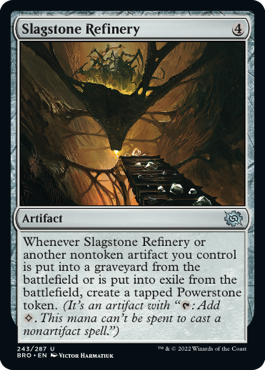
May you make many Powerstones and enjoy them in good health!
Cards
No Changes
No Changes
Commander Advisory Group (CAG) additions
At the moment, there are no cards which we feel need banning. We recognize that there has been a fair amount of discussion of both Dockside Extortionist and Thassa’s Oracle. For the moment, we believe that both of these cards have been self-selected to the appropriate tables. Dockside Extortionist is far closer to the line due to the recent uptick in Treasure-related cards; it will remain firmly in our sights. Thassa’s Oracle remains distant enough that we don’t consider it a serious cause for concern. When it comes to evaluating cards for banning, it’s not just what a card does (its power), but what a card does to the broader format (its impact). We don’t currently see a negative enough impact
Quite a bit of energy has gone into discussing one of the community’s most talked-about issues, untrusted games—those in which you don’t know the other people you’re sitting down with. This is a tough nut to crack. Foremost, we don’t believe it’s an issue that we can ban our way into solving. What we think we can do is help not just players, but LGS owners/managers and event organizers, with some best practices and other advice on how to craft the kind of Commander environment they want. There isn’t a single, homogenized view among all the people who are running Commander in various places, so one of our new efforts going forward will be to provide those folks with some living documentation that will help them get to where they’d like to go.
One of the other things we’ve spent time on is RC expansion. We’ve conducted two rounds of interviews over the last few months and are on the verge of making a decision. We aren’t going to make it at the moment, but we expect to announce the addition(s) before the next quarterly update–likely some time in the middle of September. As we’ve been thinking about RC membership, we’ve taken the opportunity to talk with some folks that we’d love to hear more from.
To that end, welcome three outstanding individuals onto the Commander Advisory Group: Rebell, Benjamin Wheeler, and Tim Willoughby. Rebell brings deep knowledge of the format across all levels of play and she combines it with an insatiable drive for building high-quality, inclusive communities. Few people know community-built formats better than Wheeler, who was responsible for crafting both Canadian Highlander and Gladiator, then bringing them to the Magic forefront. His propensity for building oddball Commander decks is now legendary. Tim was an early adopter of EDH, jamming games with Sheldon and other judges as early as 2005 in the after-hours of professional Magic events. His essay on why each card is banned is commonly regarded as the best of its kind and will be adapted for inclusion on the RC website. Each of our new members brings to the table a unique voice paired with a first-rate Magic and Commander mind. We look forward to their advice on both existing and new projects. You can check out their bios over on the RC website.
There’s a specific channel on the Commander RC Discord server dedicated to discussing the quarterly updates. We look forward to you stopping on by and discussing it, as well as a host of other topics, with now more than 7,000 friends.
Check out these sweet preview cards sent to us free by our friends at Wizards of the Coast. The first was an early icon of the format since it came out in Planar Chaos. It looks sweet in any treatment. The second will slot nicely into a deck led by the first.
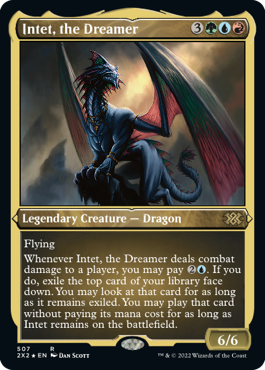
Intet, the Dreamer, art by Dan Scott
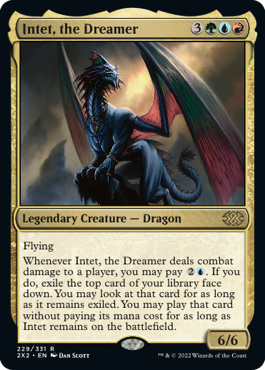
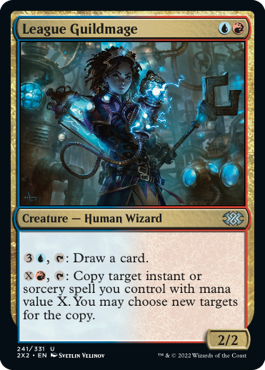
League Guildmage, art by Svetlin Velinov